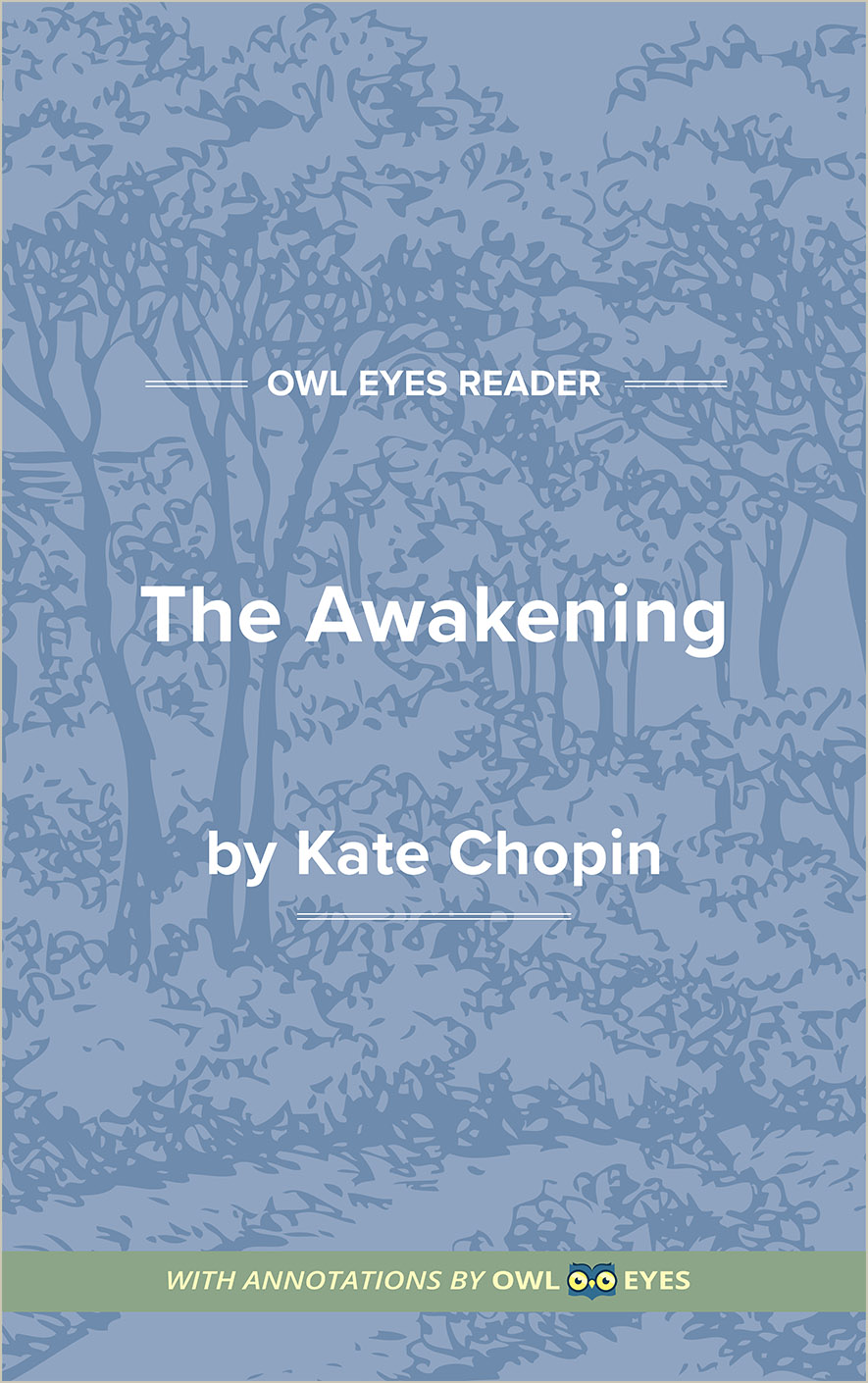Analysis Pages
Plot in The Awakening
Plot Examples in The Awakening:
Chapter I
🔒"“You are burnt beyond recognition,” he added, looking at his wife as one looks at a valuable piece of personal property which has suffered some damage...." See in text (Chapter I)
Chapter III
🔒"An indescribable oppression, which seemed to generate in some unfamiliar part of her consciousness, filled her whole being with a vague anguish. It was like a shadow, like a mist passing across her soul's summer day..." See in text (Chapter III)
Chapter X
🔒"A thousand emotions have swept through me to-night. I don't comprehend half of them...." See in text (Chapter X)
Chapter XII
🔒"She was blindly following whatever impulse moved her, as if she had placed herself in alien hands for direction, and freed her soul of responsibility...." See in text (Chapter XII)
Chapter XVIII
🔒"Edna vaguely wondered what she meant by “life's delirium.” It had crossed her thought like some unsought, extraneous impression...." See in text (Chapter XVIII)
"The little glimpse of domestic harmony which had been offered her, gave her no regret, no longing. It was not a condition of life which fitted her, and she could see in it but an appalling and hopeless ennui. She was moved by a kind of commiseration for Madame Ratignolle,—a pity for that colorless existence which never uplifted its possessor beyond the region of blind contentment, in which no moment of anguish ever visited her soul, in which she would never have the taste of life's delirium...." See in text (Chapter XVIII)
Chapter XXXI
🔒"seductive entreaties...." See in text (Chapter XXXI)

